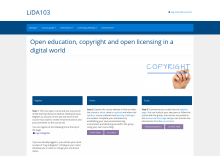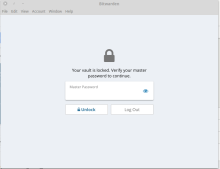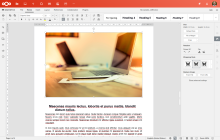Building a Course Site with WordPress on Ubuntu 20.04 using Docker Compose
The OERu offers accredited tertiary (University level) courses to learners anywhere on the Internet, whether they are using desktop computers or mobile devices.
Setting up your own BitWarden password manager and VaultWarden sync server
One of the key requirements of pursuing Good Digital Hygiene is using strong passwords, and a different strong password for every application. This is relatively easy to do in theory, with the aid of clever software, but it's something desperately few people do well in practice. I'm going to explain how I've addressed this issue of digital hygiene for myself, and how you can do it for yourself, and your entire family, social circle, or community.
Configuring a Linux server to send email via the Postfix SMTP server using an external authenticating SMTP host
Just about any and every server needs to be able to send email - whether it's end-user-email, like password recovery services for a website to emails to system administrators reporting on the status of system backups and errors. The problem is that it's non trivial (understatement) to set up a mail server properly.
Protecting your users with Let's Encrypt SSL Certs
SkFor any website that requires anyone (users or even just a few admins) to transfer secrets to and from it, you want to ensure the data is end-to-end encrypted. Today various browsers (like Firefox) give warnings when you're sending secret data (like passwords) "in the clear", namely unencrypted.
OERu Web Services as of February 2021
The OERu offers a wide array of online services, all Free and Open Source Software (FOSS), for the benefit of its global learner community, its partner representatives, and educators in general.
As of this writing, in February 2021, we run the following production systems:
2020 OERF Open Technology Overview
As a matter of principle, the OER Foundation makes use of Free and Open Source Software (FOSS) wherever possible. Partnering with the Foundation provides an opportunity to share the experience of an organisation with hands-on experience in hosting all its technology infrastructure using FOSS.
The foundation has implemented a component-based approach selecting “best-of-breed” open technologies for assembling the OERu’s Digital Learning Environment (DLE) rather than providing learning materials through a single application like a Learning Management System (LMS).
Working from home
In light of the current global pandemic, there's lots of interest out there on "working remotely" or "working from home". We've been doing a for years, and it has a lot of advantages... here's how we do it....
Automatic versioned backups of Sqlite in a Docker Compose container
For relatively lightweight applications that are either in development, or single user, or have limited requirements for concurrency and massive data sets, SQLite is a superb, full-function, but compact, almost ubiquitous database (it's used on every mobile device, for example).
Installing NextCloud Hub with OnlyOffice on Ubuntu 18.04
Update 2023-06-14: Here's a new tutorial for Ubuntu 22.04! Consider this older tutorial obsolete (but possibly helpful for people with older systems?)
Hourly versioned MongoDB backup
Because the collaboration of an open community is its real history, I place a high value on backing up the Rocket.Chat servers I'm responsible for, and especially the data they generate, held in MongoDB files (on the host) managed by a MongoDB container.
To do that reliably, I have set up a bash script which does an hourly backup of all MongoDB "databases" and automatically maintains 24 hourly, 7 daily, 4 weekly, 12 monthly, and 7 yearly snapshots of the databases.



